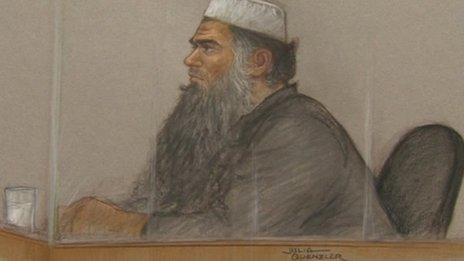Abu Qatada appeal: May stands by deadline
- Published
Theresa May: ''The government is clear... the three-month lapsed on Monday night''
The home secretary has insisted radical cleric Abu Qatada's deportation case has "no right" to be referred to the European Court of Human Rights (ECHR).
In a statement to the Commons, Theresa May told MPs the three-month deadline for an appeal passed before the application was submitted.
But lawyers for the preacher, who faces bomb plotting charges in Jordan, and the ECHR said the deadline was later.
Shadow home secretary Yvette Cooper said "chaos has turned into farce".
Mrs May said: "The government is clear that Abu Qatada has no right to refer the case to the Grand Chamber of the European Court of Human Rights, since the three-month deadline to do so lapsed at midnight on Monday."
She confirmed she had written to the ECHR to argue Abu Qatada's application should be rejected and the case heard by the UK's Special Immigration Appeals Commission (Siac) instead.
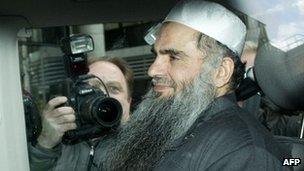
Abu Qatada faces a re-trial in Jordan for plotting bomb attacks against American and Israeli tourists
The deportation process and any potential Siac appeal were now on hold, she confirmed.
She also said Abu Qatada had chosen to use delaying tactics, which he had been doing since 2001.
But Mrs Cooper said: "When the home secretary is accused of not knowing what day of the week it is, chaos and confusion have turned into farce.
"But this farce has serious consequences - in additional delays, in a greater risk Abu Qatada will be out on bail, in a risk he will sue the government for recommencing deportation proceedings while injunction 39 was still in place."
Abu Qatada's removal to Jordan on bomb plotting charges may now be delayed until the ECHR decides whether to hear the case.
Ministers believe the three-month deadline for appealing against the ECHR ruling passed on Monday night and, on Tuesday, Mrs May told MPs she had received fresh guarantees from Jordan that Abu Qatada would face a fair trial and that he could now be deported.
Yvette Cooper: ''When the Home Secretary is accused of not knowing what day of the week it is, chaos and confusion has turned into farce''
But on Wednesday the court said it had received a request for an appeal at 22:00 BST on Tuesday, which it said was before the deadline.
The deportation process cannot begin until a panel of judges has decided whether the case should go to the Grand Chamber of the court.
BBC legal correspondent Clive Coleman said it appeared the government had got it wrong as the time limit for an application expired three months "from" the date of the court's judgement - taking it to midnight on 17 April.
The ECHR originally blocked Abu Qatada's deportation to Jordan on 17 January.
The judges ruled that, while they were satisfied that the preacher would not face ill-treatment in Jordan, the UK could not deport him without assurances from Jordan that evidence gained through torture would not be used against him.
Abu Qatada's lawyers are appealing against the part of the court's ruling that stated it was satisfied that he would not face torture if he was deported.
An ECHR spokeswoman said the panel always considered the timing of the referral request and decided whether it was before or after the deadline.
However, a spokesman denied a claim made in the Commons that European judges could exercise discretion and still hear Mr Qatada's appeal even after the three-month deadline had expired.
Justice Secretary Ken Clarke dismissed the row over timings as "hysterical angst" and said he was not sure why everyone was "wildly excited" about a "procedural wrangle".
"I'm not sure why it's regarded as such a big deal," he told BBC Breakfast.
"We know perfectly well legal proceedings are still going to take a few months, they're bound to do so."
Lucy Scott-Moncrieff, from the Law Society, said it appeared the government had made mistakes.
"The procedure for appealing against a decision of the Strasbourg court is well laid down and what Mr Qatada's lawyers are doing is perfectly within that procedure," she told BBC Radio 4's Today programme.
The row comes as justice ministers from 47 countries gather in Brighton to discuss reforms to the ECHR - including whether it should hear fewer appeals.
The UK has criticised some of its judgements - including blocking the deportation of Abu Qatada - and wants to limit the court's powers.
- Published19 April 2012
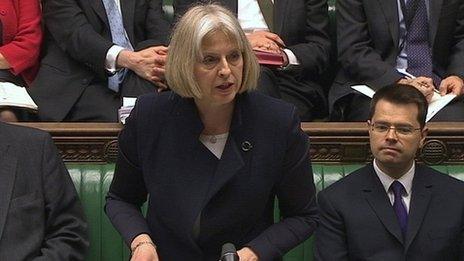
- Published19 April 2012
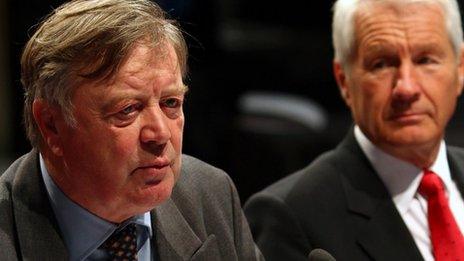
- Published18 April 2012
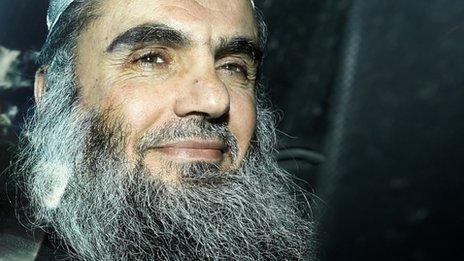
- Published26 June 2014
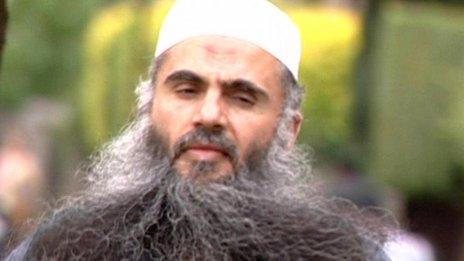
- Published23 April 2012
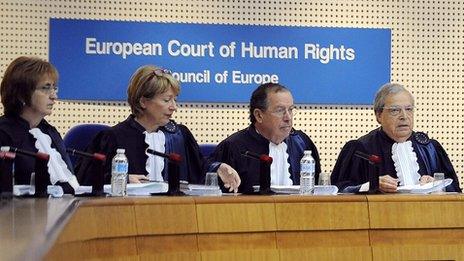
- Published17 April 2012
